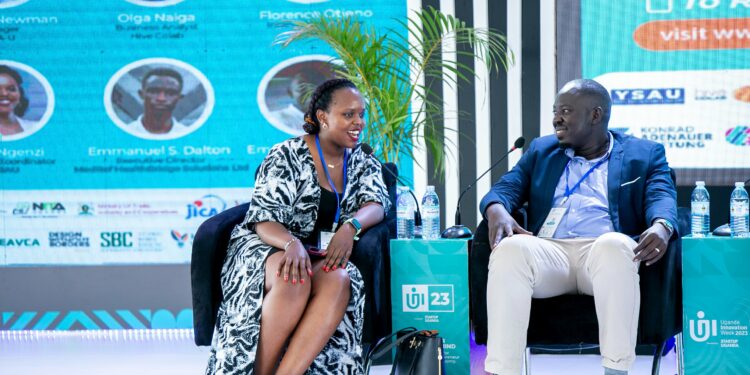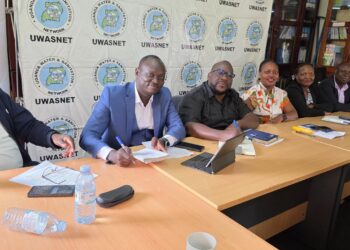As the landscape of business undergoes a digital transformation, start-ups find themselves at the forefront of navigating this new era of innovation. The Uganda Innovation Week 2023 stands as a pivotal platform, addressing the imperative for start-ups to embrace and harness digital advancements for their success.
Within this dynamic setting, experts delve into the blueprint guiding start-ups through the age of digital innovations, offering insights and strategies crucial for thriving in this evolving business environment.
In this era of rapid technological evolution, the role of start-ups takes on heightened significance. These enterprises serve as pioneers, tasked with not only adapting to but also driving digital innovations that shape industries. The first step in this journey involves a fundamental shift in mindset—a recognition that embracing digital innovations isn’t merely an option but an essential pathway toward sustainable success.
At the heart of this discussion lies the pivotal role of agility and adaptability. Start-ups must remain agile in their approach, poised to swiftly pivot and leverage emerging technologies to meet evolving consumer demands.
Rita Ngenzi ,National Coordinator from Youth Start-Up Academy was among the pivotal panellists in Uganda Innovation Week 2023 who alluded that the blueprint for the success of Start-Ups in the Ugandan ecosystem rests on the ability to embrace technological shifts as opportunities, integrating them seamlessly into business models to create competitive advantages and foster growth.
“Many entrepreneurs find themselves driven by desperation, leading to the creation of products that may not be sustainable in the long run. To establish a business with scalability, it’s essential to incorporate design thinking. Understanding how to construct a venture tailored for Uganda, Africa, and the broader global market is crucial. While ensuring your work is impactful, there’s a necessity to align impact with a sustainable business model,” she noted.
Olga Naiga, a business analyst from Hive Calob and a prominent advocate for inclusive digital innovations, spotlighted a comprehensive roadmap aimed at fostering technological inclusivity within underserved communities. Central to her discourse were multifaceted strategies poised to bridge the digital divide, ensuring that the benefits of technological advancements extend far and wide.
Recognizing the pivotal role of affordable internet services, Naiga highlighted the urgency of cost reduction initiatives. Lowering the barriers to entry, she argued, would pave the way for more individuals and communities to engage with digital platforms, unlocking a myriad of opportunities previously out of reach.
In tandem with infrastructure and accessibility, Naiga emphasized the critical importance of digital literacy training. Implementing comprehensive programs aimed at enhancing digital skills within these communities becomes paramount. Empowering individuals with the knowledge to navigate digital landscapes equips them to harness the full potential of technology for personal and economic growth.
Emmanuel Chagara ,the founder of Milimo Cybersecurity urged that a common oversight in the development of digital products is the neglect of incorporating counter-cyber measures.
“Entrepreneurs frequently focus on ensuring their products function smoothly, sometimes overlooking the potential for unauthorized manipulation. It’s emphasized that every business, regardless of its size, remains vulnerable to hacking threats. This underscores the critical need for all innovators, especially startup founders, to prioritize cybersecurity during the development of digital products.”
Florence Otieno, an intervention officer from Enabel, highlighted the crucial role of up-skilling in integrating technology into modern business models. She emphasized the necessity for intentional efforts to enhance the digital competencies of staff.
To address the prevalent skills gap in the digital economy, she suggested conducting thorough needs assessments within organizations to identify gaps. Furthermore, Otieno proposed fostering a cultural shift toward innovation as a fundamental element in adapting to technological advancements.
Meanwhile, Innovation Week serves as a beacon, illuminating the path for start-ups to not only embrace but also harness the power of digital innovations as a catalyst for their success.
Do you have a story in your community or an opinion to share with us: Email us at editorial@watchdoguganda.com













